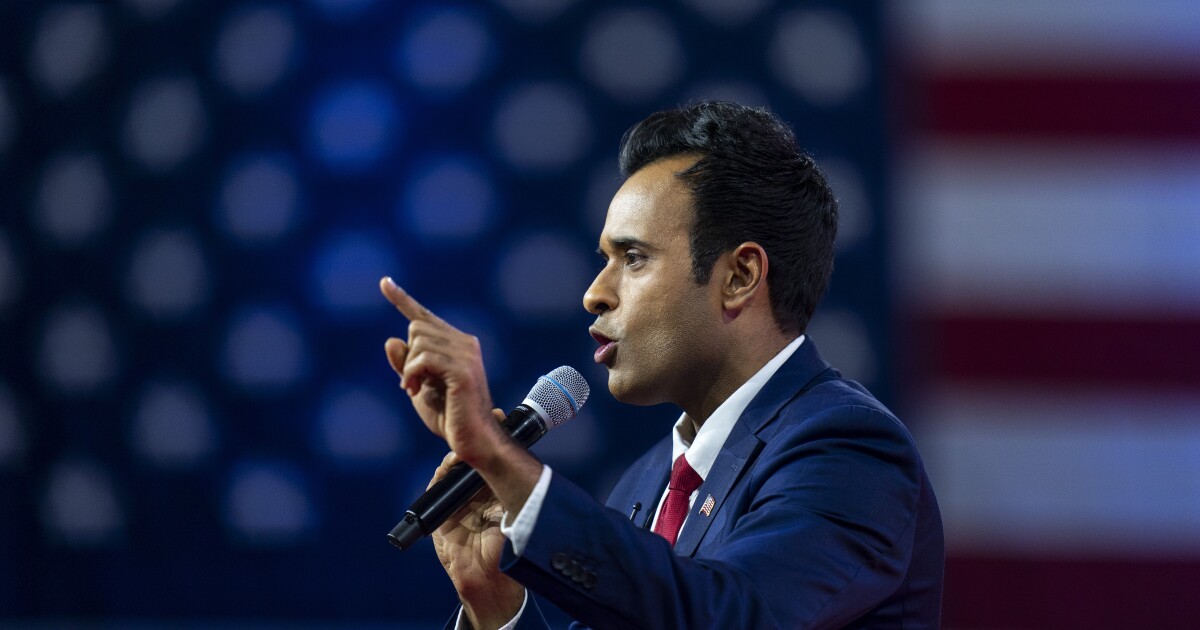

Republican presidential candidate Vivek Ramaswamy said the “crime epidemic” in the United States can be fought by bringing back insane asylums.
“It’s a taboo subject, but we have to talk about the hard truth,” Ramaswamy told Jesse Watters Primetime. “Violent crime has risen over precisely the period that we have shuttered these psychiatric institutions.”
HARRIS ALLIES SEE GUN PORTFOLIO AS OPPORTUNITY FOR HER TO REGROUP BEFORE 2024
Ramaswamy supported his policy position, saying, “A quarter of fatal police shootings involve somebody who is mentally ill.”
“The No. 1 psychiatric institution today is jail. It’s prison, and they don’t do a very good job,” Ramaswamy added. “Then you get the calls to clear the jails or to have commuting of sentences, or shortening of sentences. People leave those jails in a worse psychiatric condition often than even when they entered.”
The presidential hopeful acknowledged that mistakes and mistreatment of patients in years past point to a need for a different approach.
“I don’t think I want to be pumping psychiatric institutions with pharmaceuticals into people,” Ramaswamy said, suggesting “faith-based approaches” and that “there are better ways to do this.”
“Look at who benefited from that policy,” he continued, referring to the reliance on pharmaceuticals. “It was none other than large pharmaceutical companies that had developed anti-psychotics and other forms of anti-depressants.”
Ramaswamy said the rise of the mental health epidemic is “spreading like wildfire.”
He noted that his campaign’s charge of reviving a sense of national identity includes addressing people’s need for purpose, which should not be numbed with “using either pharmaceuticals or turning to violent crime.”
“We are overdue for an honest conversation about limited circumstances for involuntary commitment, yes, of people who are psychiatrically ill and dangerous.
CLICK HERE TO READ MORE FROM THE WASHINGTON EXAMINER
The deinstitutionalization of the mentally ill began in the 1950s.
In 1975, the Supreme Court ruled that individuals who are not posing a danger to themselves or others and are capable of living without government support cannot be committed to a facility against their will.





